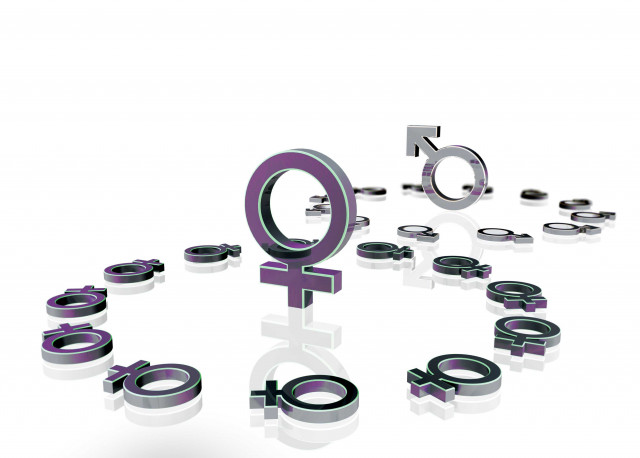Prioritising interventions: Women Parliamentary Caucus drafting legislative agenda for the year
‘Suggestions from media, civil society members are welcome’.

‘Suggestions from media, civil society members are welcome’. PHOTO:FILE
“Pakistan has been declared the third most dangerous country for women [by the Thomson Reuters Foundation] and lags far behind other countries in terms of gender equality index.
There is a lot that needs to be done for the women of Pakistan, especially in the Punjab which reports the highest incidence of violence against women among provinces,” Women Parliamentary Caucus Treasurer Dr Nausheen Hamid said at the first day of the caucus’s two-day legislative agenda consultation arranged by the United Nations Development Programme and the Women Parliamentary Caucus on Monday.
Pakistan has failed to meet several of its commitments towards the millennium development goals, especially on issues related to women, said Hamid. “The women’s parliamentary caucus comes as a welcome step at this time. It cuts across political parties and includes members of the opposition.”
She said several new laws and policies addressing domestic violence, domestic workers, home-based workers and breast-feeding were in the pipeline.

Hamid said the caucus had set up six subcommittees. The subcommittee for health will oversee issues pertaining to the millennium development goals for maternal mortality and infant mortality rates. The subcommittee for education will look into Article 25-A calling for universal primary education with emphasis on girl students. The interior subcommittee will focus on addressing incidents of violence against women and working towards advocacy for legislation in this area. The subcommittee on population welfare will try to make demographic dividend a reality and increase women’s access to family planning. The gender mainstreaming or women empowerment committee will work towards securing funds in the budget to address women’s issues effectively. The social welfare committee will look into issues of the marginalised, the poor and the disadvantaged, she said.
Shirkat Gah Executive Director Farida Shaheed said, “Pakistan is party to many women-related international obligations, including the CEDAW and the BPFA. For the women’s parliamentary caucus to be effective, it needs to be orientated with them.” She said the Shirkat Gah could work towards orientating the women’s caucus members in these areas.
Women Parliamentary Caucus convener Azma Bokhari announced the coordinators for various divisions: MPA Farzana Butt in Lahore, MPA Dr Najma in Faisalabad, MPA Tamkeen Akhtar Niazi in Sargodha, Zebunnisa Awan in Rawalpindi, Shameela Aslam in Sahiwal, Sultana Shaheen in Multan, Fozia Ayub Qureshi in Bahawalpur, Najma Begum in DG Khan, Gulnaz Shahzadi in Gujranwala.
Bokhari said, “The consultation is an opportunity for members, civil society representatives and the media to forward suggestions in forming a legislative agenda for the caucus.”

Tanveer Jahan, a member of the National Commission on the Status of Women, said the NCSW assessed government policies, programmes and measures; reviewed federal laws, rules and regulations affecting status and rights of women; suggested repeal, amendments or new legislation to end discrimination; and sponsored, steered, and encouraged new research.
Jahan said they were also working on the drafts for the Pakistan Registration of Hindu Marriage Bill 2011, Christian Marriages (Amendment) Bill 2012, Domestic Violence (Criminal Law Amendment) Bill 2012 and Christian Divorce (Amendment) Bill 2012.
She said the laws reviewed included the Human Trafficking Ordinance 2000, Criminal Law Amendment Act 2004 making honour crimes non-compoundable, laws relating to women’s political participation and monitoring of laws including the Acid Crime Act, the Sexual Harassment at Workplace Act; Anti Women Customary Practices Act
Women Caucus secretary Hina Pervaiz Butt, said, “The two-day consultative session has been held to set legislative agenda and roadmap for the year. We need to priorities the issues that require immediate intervention.”
Butt said the caucus hoped to transform the role of women in politics. She said women from all political parties should join hands, share ideas and connect.
Minister for Population Welfare Zakia Shahnawaz, PCSW chairperson Fauzia Viqar, Dr Fauzia Saeed, Begum Atiya Anayatullah also spoke on the occasion. SAP-PK Executive Director Muhammad Tahseen gave a presentation on Civil Society: Landscape of its work in the Punjab.
Published in The Express Tribune, April 8th, 2014.



















COMMENTS
Comments are moderated and generally will be posted if they are on-topic and not abusive.
For more information, please see our Comments FAQ